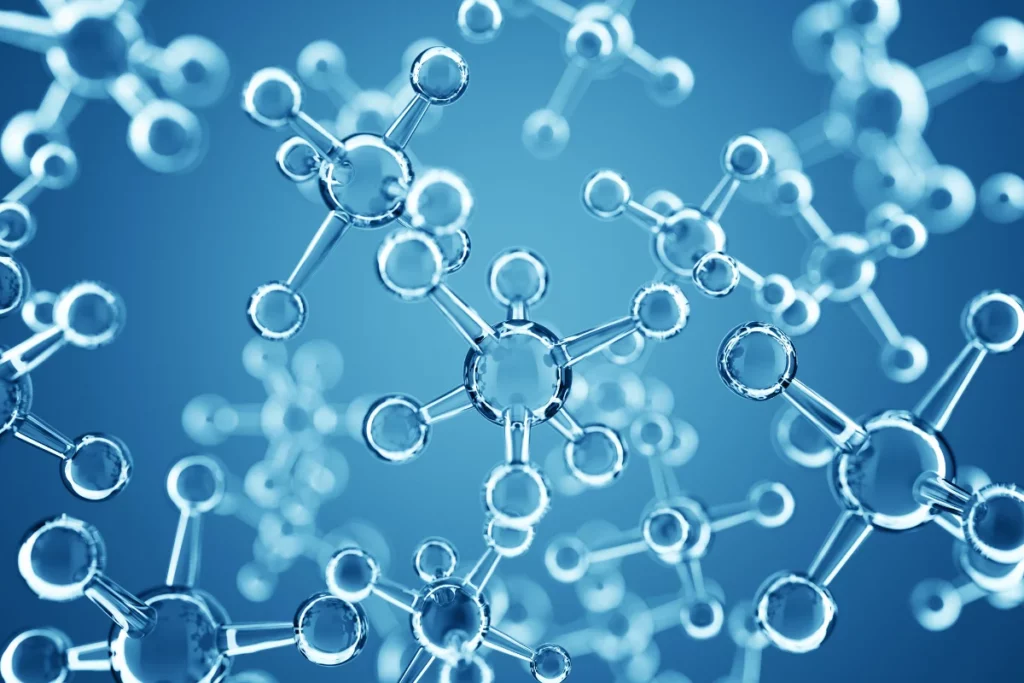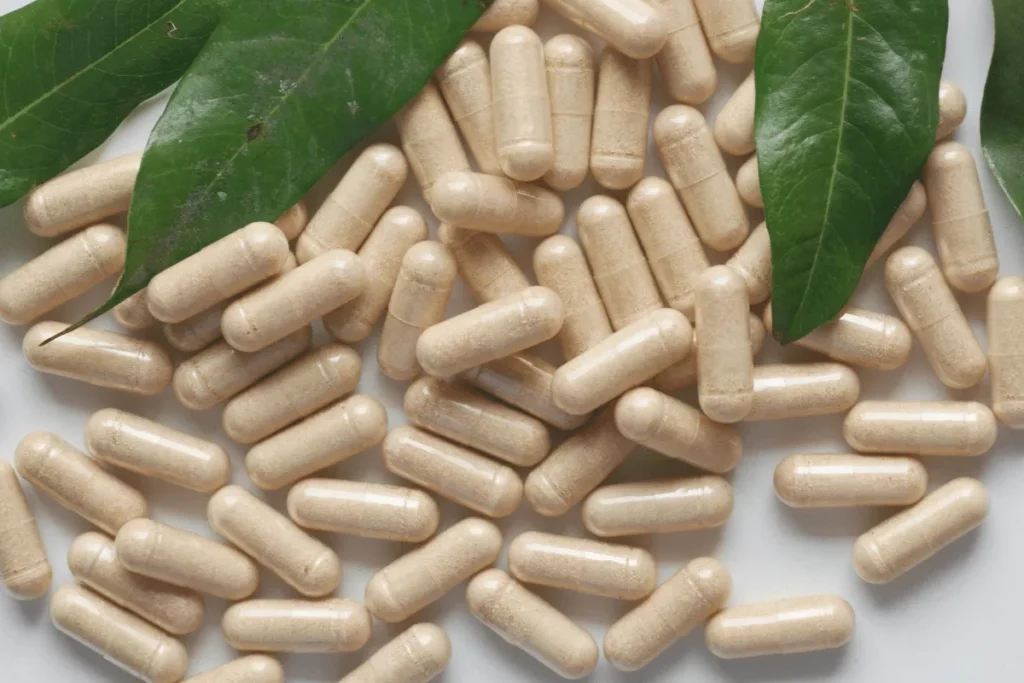[Disclaimer: This article is for informational purposes only. It is not intended as medical advice and should not replace consultation with a qualified healthcare professional.]
Pregnenolone is an important “parent hormone” that leads to other key hormones, such as progesterone, testosterone, estrogen, cortisol, and DHEA.
It plays a major role in regulating bodily functions, including energy, mood, memory, weight, and inflammation.
However, when your body doesn’t make enough Pregnenolone, you may experience unpleasant symptoms.
That’s why spotting low levels early is important so you can fix the shortage and rebalance the system.
In this complete guide, we’ll look at the many symptoms of low Pregnenolone and what causes them. We’ll also share practical, natural ways to address low levels.
Let’s learn how to optimize this foundation hormone for overall wellness.
Why Addressing Pregnenolone Deficiency Matters?
Think of Pregnenolone as your body’s hormone factory supervisor.
When Pregnenolone levels drop, it’s like a factory running at half capacity—everything downstream is affected.
This means that low Pregnenolone can trigger a domino effect, potentially disrupting everything, from your energy levels and mood to your cognitive function and stress response.
Since Pregnenolone affects many essential body functions, fixing low levels balances the whole hormone system and maintains good overall health.

What Are the Symptoms of Low Pregnenolone?
Here’s what you might experience if your Pregnenolone levels are low:
Brain and Mental Health Effects:
- Poor concentration and memory problems due to Pregnenolone’s role in neurosteroid activity
- Depression and anxiety symptoms, which studies have linked to Pregnenolone deficiency
- Persistent brain fog and mental fatigue from disrupted NMDA receptor function
- Frequent mood swings caused by irregular GABA receptor modulation
Physical and Metabolic Changes:
- Constant fatigue even after rest
- Struggling with weight management
- Reduced exercise tolerance
- Muscle weakness or joint discomfort
- Changes in blood sugar regulation
Sleep and Energy Issues:
- Insomnia or difficulty maintaining sleep, as a study in Brain Research shows Pregnenolone’s crucial role in sleep quality.
- Persistent fatigue, even after sufficient rest
- Irregular sleep-wake patterns (prevalent among shift workers according to a 2023 Environmental Research study)

Reproductive and Sexual Health:
- Decreased sex drive (while some people turn to peptides for libido support, low Pregnenolone could be the root cause)
- Fertility challenges
- For men: erectile dysfunction, reduced sperm quality
- For women: irregular periods, severe PMS, difficult menopause transition
Additional Signs to Watch For:
- Unexplained hair loss
- Skin changes (loss of elasticity, slow healing)
- Cardiovascular changes, like palpitations
- Compromised immune function
- Anti-inflammatory responses may be reduced (Pregnenolone helps regulate immune signaling pathways)
If you experience several of these symptoms, consult a healthcare provider who can properly test your hormone levels and develop an appropriate treatment plan.
Many of these symptoms can overlap with other conditions, so proper diagnosis is essential.

Low Pregnenolone Causes
Several key factors can drain Pregnenolone supplies and lead to shortages, including:
- Age-Related Decline
- Levels typically peak around age 27-32.
- Natural Pregnenolone production decreases by up to 60% with aging.
- Men experience a sharper decline (about 78%).
- Women see a more gradual reduction (about 45%).
- Chronic Stress
- High cortisol demands can lead to “Pregnenolone steal.”
- Stress hormones take priority over other hormones.
- Nutritional Deficiencies
- Low cholesterol levels (Pregnenolone is made from cholesterol)
- Deficiencies in vitamins B5, C and minerals like magnesium
- Medical Conditions
- Thyroid disorders
- Adrenal fatigue
- Inflammatory conditions
- Medications
- Statin drugs (cholesterol-lowering medications)
- Certain hormonal treatments

Pregnenolone Function and Its Role in the Body
According to a 2019 study published in The Journal of Biological Chemistry, research has shown that maintaining healthy Pregnenolone levels is vital for:
- Brain health: Helps your memory, learning, and overall cognitive function.
- Mood and emotions: Helps regulate depression and emotional stability.
- Energy metabolism: Influences how your body produces and uses energy.
- Stress management: Helps your body adapt to and handle stress.
- Inflammation control: Reduces harmful inflammation throughout your body (by suppressing inflammatory molecules like TNFα and interleukin-6).
- Nerve cell protection: Shields your brain cells from damage and helps them grow, which is especially important in conditions like Alzheimer’s.
- Immune system balance: Helps maintain your body’s defense system at optimal levels.
- Cannabis effects: Can protect your brain from cannabis-related impacts.
- Cell health: Supports proper cell movement and structure.
- Physical performance: Reduces fatigue and supports workplace productivity.
- Brain cell communication: Helps your neurons (brain cells) talk to each other better by supporting neural plasticity.
- T-cell function: Helps regulate these critical immune cells that protect you from infections.
Thankfully, lifestyle measures can help counteract falling levels.

How to Treat Low Pregnenolone
Getting your Pregnenolone levels back on track requires a systematic approach.
Let’s break down your treatment options into manageable steps:
Step 1: Professional Medical Evaluation
Before starting any treatment, you’ll need a proper diagnosis. This typically involves:
- Getting your Pregnenolone levels tested and comparing them to the normal ranges:
- For adults (≥18 years): 33-248 ng/dL
- For children and adolescents, it varies:
- Girls: Typically between 22-229 ng/dL (varies by age)
- Boys: Typically between 17-228 ng/dL(varies by age)
- Working with a healthcare provider who understands hormonal health
- Completing a comprehensive hormone panel to see the bigger picture
Step 2: Treatment Options
Once you have a clear picture of your hormonal health, there are several treatment paths available:
Hormone Replacement Therapy (HRT)
Your doctor might recommend HRT if your levels are significantly low.
It can include:
- Bioidentical Pregnenolone supplementation
- Other hormone treatments to balance related systems
- Regular monitoring to ensure optimal levels
Supplementation Options
Over-the-counter Pregnenolone supplements come in various forms:
- Capsules or pills (most common)
- Powder form
- Topical creams
- Oils
- Nasal sprays
Important Dosage Information:
- Standard starting dose: 10-100mg daily
- Higher therapeutic doses: Up to 500mg daily for 12 weeks (in specific cases)
- Individual needs vary significantly
Step 3: Safety Considerations
Before starting any Pregnenolone treatment, you should know about these safety factors:
Who Should Be Careful:
- Postmenopausal women (potential increased cancer risk) – consider peptides for menopause as an alternative treatment option
- People with hormone-sensitive conditions
- Those with breast cancer, prostate cancer, or endometriosis
- Pregnant or nursing mothers
- Children
Important Note: Remember that the FDA doesn’t strictly regulate Pregnenolone supplements. This means:
- Quality can vary between products
- Actual doses might differ from labels
- Contamination is possible in some products
Also, what works for one person may not work for another—your treatment should be as unique as you are.

How to Increase Pregnenolone Naturally
If you’re looking for a holistic approach to improving Pregnenolone levels, you can combine your supplements with some natural methods.
Dr. Eric Berg, a well-known expert in hormonal health, offers valuable insights into naturally boosting Pregnenolone levels.
Let’s break down his recommendations and combine them with other research-backed strategies.
1. Optimize Your Diet
Your body needs the right raw materials to make Pregnenolone. Here’s what to focus on:
Essential Foods:
- High-quality eggs (rich in cholesterol, the precursor to Pregnenolone)
- Grass-fed butter and meat
- Healthy fats
- Sea salt (supports adrenal function)
- Sun-exposed mushrooms (natural vitamin D source)
Key Nutrients:
- Omega-3 fatty acids (from fatty fish or supplements)
- Antioxidants (from colorful fruits and vegetables)
- Vitamin D (through sunlight exposure and diet)
2. Control Your Blood Sugar
Try these strategies to keep your insulin levels in check:
- Limit refined carbohydrates
- Eat protein with every meal
- Space your meals appropriately
- Consider intermittent fasting (under medical supervision)

3. Support Your Thyroid
A sluggish thyroid can impact Pregnenolone production.
Support it by:
- Ensuring adequate iodine intake
- Getting enough selenium
- Managing stress (which affects thyroid function)
- Avoiding environmental toxins
4. Manage Stress Levels
Chronic stress leads to something called “Pregnenolone steal,” where your body diverts resources to make stress hormones instead of other essential hormones.
Combat this with stress-reduction techniques:
- Regular meditation or mindfulness practice
- Deep breathing exercises
- Gentle Yoga
- Acupuncture
- Regular outdoor time
5. Get Adequate Sunlight
Sunlight exposure helps in multiple ways:
- Boosts vitamin D production
- Helps regulate cortisol levels
- Improves mood naturally
- Supports overall hormone balance
6. Support Your Adrenal Glands
Your adrenal glands are key players in Pregnenolone production.
Support them with:
- Regular sea salt intake (if blood pressure allows)
- Proper rest and sleep hygiene
- Stress management
- Balanced exercise routine
7. Mind-Body Practices
Incorporate activities that support both mental and hormonal health:
- Regular exercise (but avoid overtraining)
- Time in nature
- Social connections
- Enjoyable hobbies
- Proper sleep habits

Pregnenolone Supplements Benefits and Potential Side Effects
If you’re considering Pregnenolone supplementation, you’ll want to understand both its research-backed benefits and potential risks.
Proven Benefits of Pregnenolone Supplements
Studies have shown these key benefits of Pregnenolone supplementation:
- Enhanced Memory and Learning: Research shows Pregnenolone supports cognitive function by protecting your nervous system from inflammation. This is particularly significant for Alzheimer’s patients, where studies have found that lower Pregnenolone levels correlate directly with increased disease severity.
- Depression Relief: Your body uses Pregnenolone to influence MT-associated proteins (MAPs), which help in mood regulation. A 2017 study on bipolar depression patients showed significant mood improvements after just six weeks of Pregnenolone supplementation, with decreased MAP levels correlating to better symptoms.
- Schizophrenia Management: A comprehensive 2019 review demonstrated that Pregnenolone supplementation significantly improves cognitive function in schizophrenia patients. Additionally, a 2018 study found it particularly beneficial during first episodes, even before starting traditional antipsychotic treatments.
- Addiction Recovery Support: Recent studies show promising results for addiction treatment. A 2023 study found that 300mg daily reduced alcohol cravings in 43 participants with alcohol use disorder. Similarly, a 2022 study showed that 300-500mg daily decreased cocaine cravings and stress-related anxiety after two weeks of use.
- Wide-Ranging Health Benefits: Pregnenolone binds to your body’s cannabinoid receptors, similar to THC, but without psychoactive effects. This action helps treat various conditions, including adrenal fatigue, allergic lung disease, autism, fatigue, high cholesterol, hypothyroidism, infertility, inflammatory conditions, mood disorders, multiple sclerosis, OCD, osteoporosis, chronic pain, rheumatoid arthritis, stress, and type 2 diabetes.

Understanding Potential Side Effects
Pregnenolone supplements are generally well-tolerated, but since it’s a steroid hormone, you may experience steroid-like side effects.
These typically include:
- Confusion
- Mood changes
- Insomnia
- Increased appetite
- Digestive issues
More concerning are the potential long-term effects, particularly with extended use.
These include:
- Blood pressure changes
- Weakened immune system
- Muscle weakness
- Slower wound healing
- Potential vision issues like cataracts or glaucoma

Frequently Asked Questions (FAQs)
Let’s address some common questions about Pregnenolone and its effects on your body:
Is Pregnenolone a Hormone?
While often called the “mother hormone,” Pregnenolone is actually a prohormone (as characterized by the US Anti-Doping Agency) – meaning it’s a substance that converts into hormones.
It’s produced primarily in your:
- Adrenal glands
- Brain tissue
- Liver
- Skin cells
What Does Pregnenolone Do in the Body?
Pregnenolone regulates key functions tied to energy, mood, motivation, inflammation, metabolism, neural signaling, pain perception, learning, and tissue repair.
Pregnenolone works in two ways: directly and by converting into other important hormones (like cortisol, estrogen, and testosterone) that then create their own effects. This chain reaction is what we call “downstream hormone effects.”
While many people with low energy explore the best peptides for energy, Pregnenolone may also offer a natural way to support your body’s energy production and hormone balance.
What is the Optimal Pregnenolone Dosage for Females?
Research hasn’t established definitive therapeutic dosing guidelines for women.
Typical supplemental doses (referring to all the studies mentioned above) include:
- Starting dose: 10-30mg daily
- Therapeutic range: 50-100mg daily
- Maximum recommended: 200mg daily
Effects are highly individualized and require medical oversight for safety. Testing the baseline levels can help guide ideal intake.
How is Low Pregnenolone Related to Weight Gain?
Low levels of Pregnenolone can slow down your metabolism, making it harder to burn calories and easier to gain weight.
It happens because low Pregnenolone affects your thyroid, blood sugar, and cell energy levels. People often feel hungrier and store more fat with low Pregnenolone.
Conclusion
As the precursor for other key hormones, having enough Pregnenolone is important for overall health as you age. Low levels can cause lots of symptoms tied to physical, mental, and metabolic health.
Even though testing isn’t that common yet, knowing the common signs of low Pregnenolone makes it easier to catch early.
In many cases, tailored lifestyle changes can bring levels back up naturally.
Good nutrition, lowering stress, getting enough sleep, and regular exercise help your body make optimal hormones.
Working with a functional medicine doctor can also help guide personalized treatment plans using bioidentical Pregnenolone matched to your needs.








